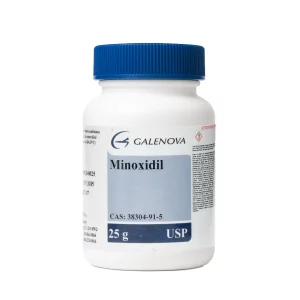Your cart is empty.
Your cart is empty.
Stress affects the body in many ways, including changes in appetite, metabolism, and weight. You’ve probably heard of stress eating, but did you know you can also lose weight if you’re stressed? Your body’s response to pressure can alter how you eat, digest food, and burn calories. While some people gain weight when stressed, others may lose weight without trying.
Stress-related weight loss can be temporary and resolve when the stressor passes. However, significant or persistent weight changes may signal an underlying issue that needs attention. Understanding these patterns helps you recognize when stress requires professional support.
This article explains why stress can cause weight loss, when it may be a concern, and practical steps to manage it effectively. We’ll also explore connections to weight loss myths and how some wonder is protein good for weight loss during stressful periods. For those needing additional support, options to purchase weight loss injections may provide helpful tools as part of a comprehensive approach.

Stress is your body’s natural response to challenges or threats. It triggers the “fight or flight” response, releasing hormones that prepare you to handle difficult situations. These chemical changes affect multiple body systems simultaneously.
Stress hormones like cortisol and adrenaline influence appetite and metabolism in complex ways. While short-term stress often suppresses hunger, chronic stress can create unpredictable eating patterns. Your nervous system prioritizes immediate survival over regular functions like digestion.
Not everyone responds the same way to stress. Some people may eat more during difficult times, while others completely lose interest in food. Individual factors like genetics, past experiences, and coping mechanisms all influence how stress affects your body.
Reduced appetite is a common short-term response to acute stress. When your mind focuses intensely on problems, hunger signals may become secondary concerns. You might forget meal times or feel physically unable to eat normal amounts.
Stress can increase calorie burn through restlessness, fidgeting, or elevated heart rate. Stress hormones boost your metabolic rate as your body prepares for action. Even unconscious movements like foot tapping or finger drumming burn additional calories throughout the day.
Digestive changes during stress can affect nutrient absorption and body function. Your vagus nerve, which controls digestion, may not work as efficiently under pressure. This disruption can lead to inflammation and poor nutrient utilization, contributing to weight changes.

Acute stress from temporary events often suppresses appetite for days or weeks. Your body focuses energy on handling the immediate challenge rather than maintaining normal eating patterns. Once the situation resolves, appetite and weight typically return to baseline.
Chronic stress lasting weeks or months can cause unpredictable weight patterns. Some people experience continued loss, while others develop irregular eating habits. Long-term stress may disrupt sleep, hormone balance, and overall health in ways that affect weight management.
Prolonged weight loss from stress may require medical attention and professional intervention. Extended periods of inadequate nutrition can impact muscle mass, immune function, and organ health. Early intervention prevents more serious complications.
Rapid weight loss of more than 5% of body weight within six months warrants medical evaluation. Signs like persistent fatigue, weakness, or difficulty concentrating may indicate inadequate nutrition. Digestive issues such as nausea, stomach pain, or changes in bowel habits also require attention.
Unplanned calorie restriction can lead to nutrient deficiencies and muscle loss. Your body may break down muscle tissue for energy when food intake drops significantly. This process affects strength, metabolism, and overall physical function.
Seek medical advice if weight loss is unexplained, persistent, or accompanied by other symptoms. A healthcare provider can assess whether stress is the primary cause or if other health conditions contribute to the changes. Professional evaluation ensures appropriate treatment and support.
Stress-reducing techniques help restore normal appetite and eating patterns. Deep breathing exercises activate your body’s relaxation response, counteracting stress hormones. Regular yoga, meditation, or simple walking can significantly reduce stress levels.
Maintaining regular meal times and balanced nutrition supports body stability during stressful periods. Even when appetite is low, consuming small, frequent meals provides necessary nutrients. Focus on nutrient-dense foods that support energy and health rather than empty calories.
Physical activity serves dual purposes for mood support and healthy appetite regulation. Exercise releases endorphins that improve mood while helping regulate hunger hormones. Even gentle movement like stretching or short walks can provide benefits during difficult times.
Health conditions like thyroid disorders, gastrointestinal issues, and infections can also cause weight loss. Hyperthyroidism speeds up metabolism, leading to rapid weight changes despite normal eating. Digestive problems may prevent proper nutrient absorption.
Mental health conditions, including depression and anxiety can significantly impact appetite and weight. Some medications used to treat these conditions may also affect weight as a side effect. A comprehensive evaluation considers all potential contributing factors.
Never assume stress is the only cause without proper evaluation by a healthcare patient. Multiple factors often contribute to weight changes, and identifying all causes ensures appropriate treatment. Professional assessment provides the best foundation for effective management.
Final Thoughts
Stress-related weight loss represents a complex interplay between psychological pressures and physical responses that affects everyone differently. While temporary weight fluctuations during stressful periods are normal, understanding your body’s unique patterns helps you recognize when intervention may be needed.
The key lies in maintaining perspective and balance. Stress is an inevitable part of life, but it doesn’t have to derail your health and well-being. By developing healthy coping mechanisms early, you create a foundation that supports your body through challenging times.
Remember that sustainable health approaches focus on long-term patterns rather than short-term changes. If stress consistently affects your eating habits or weight, this signals an opportunity to strengthen your stress management toolkit rather than cause for alarm.
Most importantly, don’t hesitate to seek professional support when stress feels overwhelming or when physical symptoms persist.
Your body’s stress response evolved to protect you. By understanding and working with these natural processes rather than against them, you can maintain both your physical health and emotional resilience through life’s inevitable challenges.
Yes, stress can reduce appetite and increase calorie burn, leading to unintentional weight loss. Stress hormones affect hunger signals and metabolism, making it possible to lose weight without deliberate effort. This response varies significantly between individuals.
More than 5% of body weight lost within six months without trying should be discussed with a healthcare provider. Rapid loss can indicate inadequate nutrition or underlying health issues. Professional evaluation helps determine appropriate next steps.
Often yes, as appetite and eating patterns normalize when stress decreases. Body weight typically stabilizes once regular nutrition and lifestyle habits resume. However, some people may need support to restore healthy eating patterns.
Yes, if the loss is rapid, unexplained, or accompanied by other symptoms. Healthcare providers can assess whether stress is the primary cause and rule out other health conditions. Professional guidance ensures appropriate treatment and support.
No, some people gain weight during stress due to increased cravings or changes in eating habits. Emotional eating and stress hormones can promote weight gain in many individuals. Individual responses to stress vary considerably based on multiple factors.

Minoxidil 25mg - Oral vasodilator for blood pressure management. Cardiovascular foundation support, pharmaceutical-grade standards, expert monitoring required.

Acarbose 50mg 120 Tablets - Gentle introduction to glucose control. Three-times daily with meals, precision-formulated tablet strength.

Dasatinib 20mg 60 Tablets - Flexible pediatric-strength dosing option. USP standards compliance, anytime administration, gradual increase capability.
Unlock savings on bundles and elevate your online experience today!